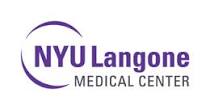Combination of Revlimid, Melphalan and Dexamethasone as First Line Treatment for Multiple Myeloma
| Status: | Archived |
|---|---|
| Conditions: | Blood Cancer, Hematology |
| Therapuetic Areas: | Hematology, Oncology |
| Healthy: | No |
| Age Range: | Any |
| Updated: | 7/1/2011 |
| Start Date: | November 2008 |
| End Date: | December 2014 |
Phase II Study of Revlimid (Lenalidomine), Melphalan, and Dexamethasone (ReMeDex) for Newly Diagnosed Multiple Myeloma Patients Not Undergoing Autologous Transplantation
This study is to determine whether addition of Revlimid to standard therapy will increase
overall and complete response rates compared to historical standard frontline therapy and
whether this combination treatment has fewer side effects than similar combination induction
treatment.
Current multiple myeloma therapies, typically an induction regimen followed by consolidation
therapy with high dose chemotherapy and autologous stem cell rescue (autologous
transplantation), can induce remission but relapse and death are inevitable. A growing body
of literature suggests that consolidation therapy with autologous transplantation does not
confer additional survival benefit and may have increased procedure-related morbidity and
mortality in patients over 65 years old. Autologous transplantation is no longer
recommended as standard care for this population. In addition, certain patients may not be
eligible for autologous transplantation due to co-morbid medical conditions or may elect not
to undergo the procedure for personal reasons.
The historic standard of care for multiple myeloma patients who were not eligible for
autologous transplantation for consolidation was induction therapy with melphalan/
prednisone (MP), often followed by some form of maintenance therapy after achievement of
complete or partial remission. A recent phase 3 study showed that the addition of
thalidomide to MP (MPT) demonstrated higher overall and complete response rates. For
patients who are eligible for autologous transplantation, thalidomide/ dexamethasone (Thal
Dex) induction therapy is considered the standard of care, but a phase 2 study of
lenalidomide (Revlimid)/ dexamethasone (Rev Dex) induction therapy demonstrated higher
overall and complete response rates compared to Thal Dex. In addition, lenalidomide has a
favorable side effect profile compared to thalidomide. Based on these data, we hypothesize
that the combination of Revlimid/ melphalan/ dexamethasone (ReMeDex) induction therapy for
myeloma patients who are not planned for autologous transplantation due to age restriction
or other factors may demonstrate higher overall and/ or complete response rates with fewer
side effects.
We found this trial at
2
sites
Click here to add this to my saved trials
New York University Langone Medical Center NYU NYU Langone Medical Center, a world-class, patient-centered, integrated,...
Click here to add this to my saved trials
